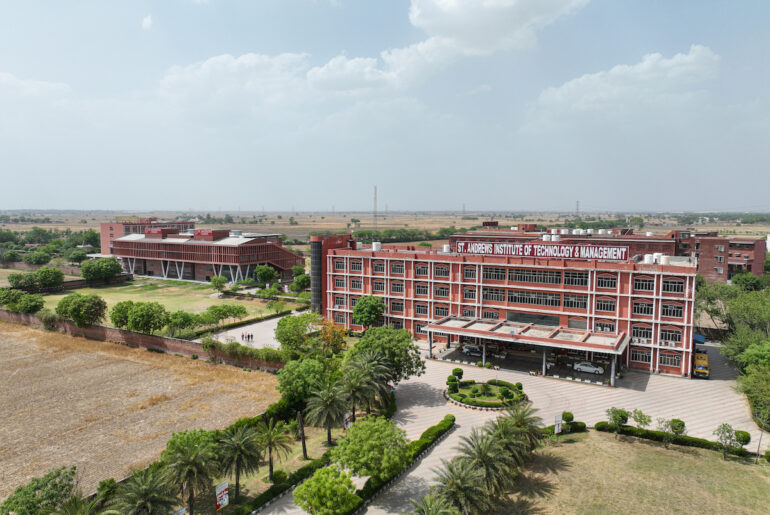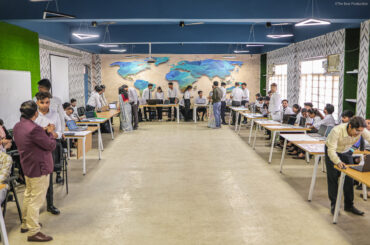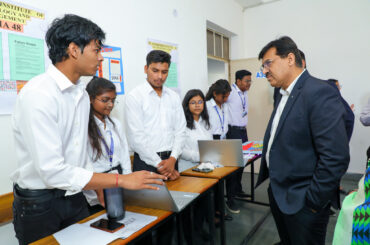BTech CSE Syllabus in detail.
The B.Tech (Bachelor of Technology) in Computer Science Engineering (CSE) program features a comprehensive curriculum. The B Tech CSE Syllabus is designed to provide students with a strong foundation in both theoretical concepts and practical skills essential for the field.
Over the course of four years, students delve into a range of subjects that include Mathematics, Physics, and Basic Sciences in the first year, establishing fundamental principles crucial for engineering. This initial phase also introduces them to Engineering Mechanics, Basic Electrical Engineering, and Programming Fundamentals, laying the groundwork for subsequent years.
In the second year, the focus shifts towards more specialized topics such as Data Structures, Computer Organization and Architecture, Database Management Systems (DBMS), Operating Systems, Object-Oriented Programming, and Software Engineering. Here, students deepen their understanding of software design principles, hardware architecture, and database management, alongside gaining proficiency in programming languages like C and Java.
Moving into the third year, the curriculum advances into higher-level subjects including Algorithms, Computer Networks, Compiler Design, Artificial Intelligence, and Web Technologies. Students explore algorithmic design, network protocols, compiler construction techniques, and web development frameworks, preparing them for advanced applications in various domains of computer science.
In their final year, students engage with specialized areas such as Cyber Security, Distributed Systems, Automated Learning and Data Mining, and undertake a significant Project Work that integrates their accumulated knowledge into a practical application or research endeavor. This phase also includes seminars, presentations, and professional practice modules aimed at enhancing communication skills, ethical awareness, and industry readiness.
Some of the most opted courses in India and St. Andrews college or different Engineering college or Management colleges are as follows:-
Importance of Computer Science Engineering Courses
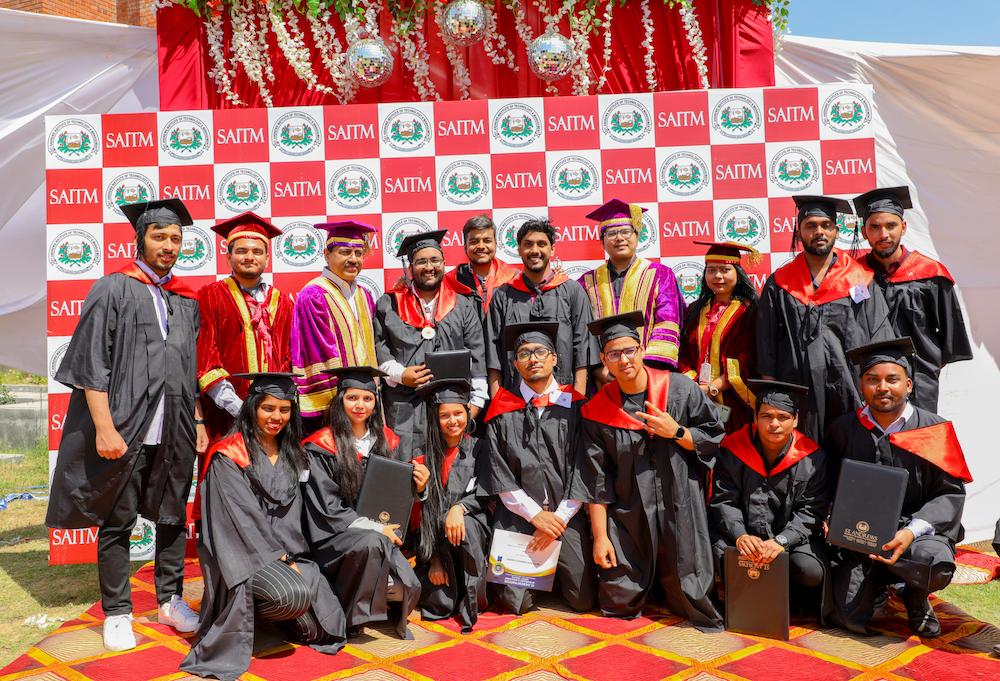
Computer Science Engineering (CSE) is crucial in today’s digital era for its role in innovation, efficiency, and connectivity. The B Tech CSE Syllabus powers technological advancements in artificial intelligence, automated learning, cybersecurity, and data mining, shaping industries like healthcare, finance, and entertainment.
CSE professionals develop software, design algorithms, and manage networks critical to global communication and commerce. They enable automation, improve decision-making through data analytics, and enhance user experiences across platforms.
Computer science engineering’s interdisciplinary nature bridges fields like biology and physics, driving research and development.
In essence, Computer science engineering drives economic growth, empowers businesses and individuals, and addresses societal challenges through continuous innovation and application of computing technologies.
B.Tech in Computer Science Engineering
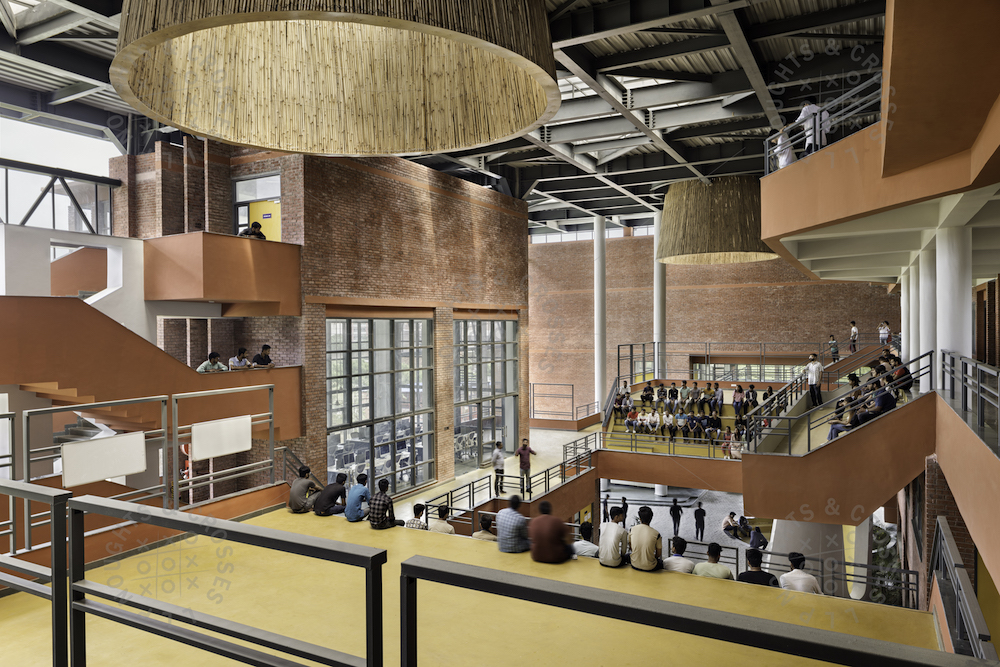
Bachelor of Technology in Computer Science Engineering (CSE) is a four-year undergraduate program combining computer science principles with engineering practices. The B Tech CSE Syllabus covers programming, data structures, algorithms, computer networks, computer programming, databases, operating systems, and software engineering.
Mathematics subjects such as discrete mathematics, probability, statistics, linear algebra, and calculus are integral. The curriculum includes specializations in AI, automated learning, cybersecurity, and data mining, alongside practical experience through labs, projects, and internships.
Graduates are equipped for diverse careers in software development, IT consulting, research, and data analysis, making it a highly valued degree in the tech industry.
Key components of the program include:
Fundamental Subjects: Programming, Data Structures, Algorithms, Computer Networks, Database Management, Operating Systems, Software Engineering, and Computer Architecture.
Mathematics: Discrete Mathematics, Probability and Statistics, Linear Algebra, and Calculus.
Specializations: Artificial Intelligence, Automated Learning, Cybersecurity, Data Mining, and Cloud Computing.
Practical Experience: Laboratory work, projects, internships, and sometimes industry collaboration.
B.Tech CSE Syllabus;
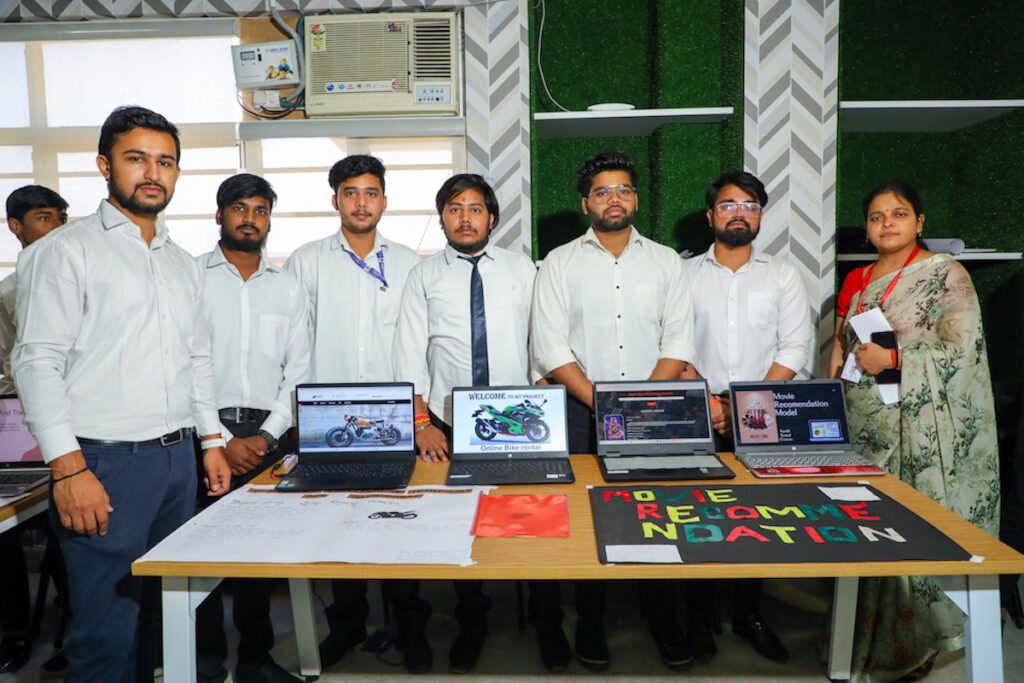
Below is a detailed yearly breakdown of a typical B.Tech Computer Science Engineering program, highlighting core subjects and electives commonly included in each semester. The B Tech CSE Syllabus provides a structured framework for students to build their expertise and knowledge in the field.
First Year:
Mathematics-I
Differential Calculus
Integral Calculus
Differential Equations
Physics
Mechanics
Thermodynamics
Optics
Chemistry
Atomic Structure
Chemical Bonding
Thermodynamics
Engineering Graphics
Engineering Drawing
CAD Basics
Basic Electrical Engineering
Fundamentals of Electrical Circuits
Electrical Machines
Programming in C/Python
Basics of Programming
Problem Solving Techniques
Communication Skills
Technical Communication
Presentation Skills
Second Year;
Mathematics-II
Vector Calculus
Complex Analysis
Probability and Statistics
Digital Logic Design
Boolean Algebra
Logic Gates
Combinational and Sequential Circuits
Computer Organization and Architecture
CPU Architecture
Memory Hierarchy
I/O Systems
Database Management Systems (DBMS)
Relational Model
SQL Programming
Normalization
Operating Systems
Process Management
Memory Management
File Systems
Data Structures and Algorithms
Arrays, Linked Lists, Stacks, Queues
Trees, Graphs
Sorting and Searching Algorithms
Object-Oriented Programming (OOP)
Principles of OOP
Java or C++ Programming
Third Year:
Software Engineering
Application Development
Requirements Engineering
Software Testing and Quality Assurance
Computer Networks
Network Fundamentals
TCP/IP Protocol Suite
Network Security
Web Technologies
HTML, CSS, JavaScript
Server-side Scripting (PHP, Node.js)
Web Security
Artificial Intelligence and Machine Learning
Machine Learning Algorithms
Neural Networks
Natural Language Processing (NLP)
Cyber-security
Cryptography
Network Security
Ethical Hacking
Elective Courses
Big Data Analytics
IoT
Mobile App Development
Fourth Year
Elective Courses
Blockchain Technology
Robotics
Bioinformatics
Human-Computer Interaction
Major Project
Research-oriented project in a specialized area
Implementation, documentation, and presentation
Internship/Industrial Training
Practical experience in industry or research organization
Application of theoretical knowledge in real-world scenarios
Comprehensive Viva
Semester-wise Breakdown of B Tech Syllabus

Creating a semester-wise syllabus for a B Tech Computer Science program involves outlining the courses and topics typically covered over the course of four years or eight semesters. The B Tech CSE Syllabus details the essential subjects and electives for each semester.
Below is a detailed semester-wise breakdown of a typical B.Tech Computer science engineering program, highlighting core subjects and electives commonly included in each semester.
Semester-wise B.Tech Computer Science Engineering Syllabus
First Year;
Semester 1
- Mathematics I: Fundamental mathematical techniques used in engineering.
- Physics I: Basic concepts of physics relevant to technology.
- Chemistry I: Introduction to chemical principles with industrial applications.
- Mechanics: Basic principles of mechanics.
- Basic Electrical Engineering: Fundamentals of electrical technology.
- Introduction to Computing and Problem Solving: Introduction to programming and problem-solving techniques.
Semester 2
- Mathematics II: Continuation of Engineering Mathematics I.
- Physics II: Advanced topics in physics.
- Chemistry II: Continuation of Engineering Chemistry I.
- Environmental Studies: Study of environmental science issues.
- Engineering Drawing and Graphics: Basics of technical drawing and CAD.
- Object-Oriented Programming: Introduction to OOP concepts using a language like Java or C++.
Second Year:
Semester 3
- Data Structures: Introduction to data organization and management.
- Discrete Mathematics: Mathematical foundations for computer science.
- Digital Logic Design: Fundamentals of digital circuits.
- Computer Organization and Architecture: Study of computer hardware and underlying architectural principles.
- Operating Systems: Basics of OS, functions, and management of resources.
Semester 4
- Algorithms: Design and analysis of algorithms.
- Database Management Systems: Fundamentals of database systems and SQL.
- Software Engineering Introduction to software development and lifecycle.
- Microprocessors and Microcontrollers: Study of processors and microcontroller architecture.
- Computer Networks: Basics of networking and data communication.
Third Year;
Semester 5
- Theory of Computation: Study of computational theory and automata.
- Compiler Design: Basics of compiler construction and design.
- Artificial Intelligence: Introduction to AI principles and techniques.
- Web Technologies: Study of web development tools and technologies.
- Elective I: Subject chosen from a set of elective courses.
Semester 6
- Machine Learning: Introduction to machine learning concepts and algorithms.
- System Software: Study of system software like compilers and operating systems.
- Computer Graphics: Introduction to graphic systems and rendering techniques.
- Information Security: Principles of securing information systems.
- Elective II: Another subject chosen from a set of elective courses.
Fourth Year:
Semester 7
- Cloud Computing: Introduction to cloud services and architecture.
- Internet of Things (IoT): Basics of IoT systems and applications.
- Elective III & IV: Advanced elective subjects in areas of specialization.
- Project Work I: Initial phase of a comprehensive final year project.
Semester 8
- Data Analytics: Techniques and tools for analyzing large data sets.
- Mobile Computing: Principles of mobile application development and deployment.
- Elective V & VI: More advanced electives based on current and emerging technologies.
- Project Work II: Completion and presentation of the final year project.
Core Subjects in Computer Science Engineering
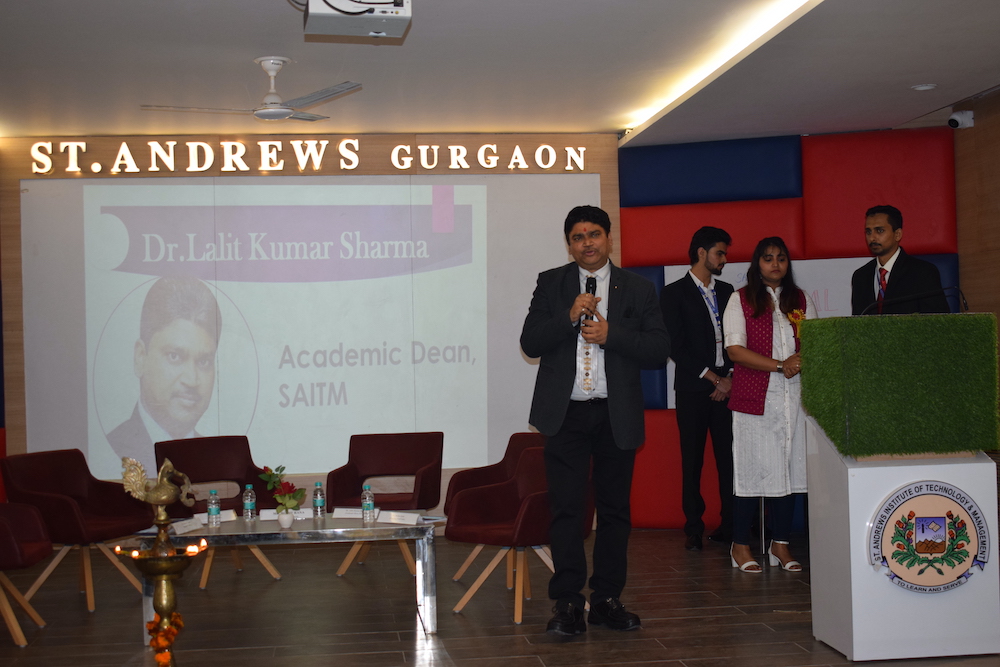
Here are the core subjects commonly included in the curriculum of Computer science engineering:
Programming Languages and Paradigms:
Objectives: Understanding various programming languages, their syntax, semantics, and paradigms.
Examples: C, C++, Java, Computer Programming, Python, and functional programming languages like Haskell.
Data Structures and Algorithms;
Objectives: Learning to organize and manipulate data efficiently.
Examples: Arrays, Linked Lists, Trees, Graphs, Sorting Algorithms, Search Algorithms.
Computer Organization and Architecture:
Objectives: Understanding the architecture of computers and their components.
Topics: CPU architecture, memory systems, I/O systems, cache memory, and parallel processing.
Operating Systems:
Objectives: Understanding the fundamentals of operating systems and their functionalities.
Topics: Process management, memory management, file systems, and concurrency.
Database Management Systems (DBMS):
Objectives: Learning to design, manage, and query databases.
Topics: Relational database concepts, SQL, NoSQL, database normalization, and transaction management.
Computer Networks
Objectives: Understanding the principles and protocols of computer networking.
Topics: TCP/IP, HTTP, DNS, routing algorithms, network security, and wireless networks.
Software Engineering;
Objectives: Learning methodologies and practices for software engineering.
Topics: application development, agile methodologies, software testing, and quality assurance.
Theory of Computation:
Objectives: Understanding the mathematical models of computation.
Topics: Automata theory, formal languages, computability theory, and complexity theory.
Compiler Design:
Objectives: Learning the process of translating high-level programming languages to machine code.
Topics: Lexical analysis, syntax analysis, semantic analysis, optimization, and code generation.
Artificial Intelligence and Machine Learning:
Objectives: Understanding the principles and applications of AI and ML.
Topics: Neural networks, deep learning, language technology, and machine vision.
Web Technologies
Objectives: Learning to develop web applications and services.
Topics: HTML, CSS, JavaScript, web frameworks (e.g., Django, React, Angular), and RESTful APIs.
Cyber security;
Objectives: Understanding the principles and practices of securing computer systems and networks.
Topics: Cryptography, network security, ethical hacking, and cybersecurity policies.
Software Quality Management:
Objectives: Ensuring the quality and reliability of software products.
Topics: Software metrics, testing strategies, defect prevention, and software maintenance.
Data Science and Big Data Analytics:
Objectives: Analyzing and interpreting large datasets to extract meaningful insights.
Topics: Data preprocessing, statistical analysis, automated learning algorithms, and data visualization.
Ethics and Professional Practices:
Objectives: Understanding ethical considerations in computing and professional responsibilities.
Topics: Intellectual property rights, privacy concerns, and ethical decision-making in technology.
Elective Subjects in Computer Science

Elective subjects in Computer Science vary by institution but generally cover a wide range of specialized areas to allow students to tailor their education to their interests and career goals.
Here are some common elective subjects in Computer Science:
Artificial Intelligence(AI)
Introduction to AI
Automated Learning
Deep Learning
Natural Language Processing
Computer Vision
Data Science and Analytics
Data Mining
Big Data Analytics
Data Visualization
Statistical Learning
Predictive Analytics
Software Engineering
Advanced Software Engineering
Agile Development
Software Testing and Quality Assurance
Software Architecture and Design
DevOps
Networks and Security
Network Security
Cryptography
Cybersecurity
Cloud Computing
Wireless and Mobile Networks
Human-Computer Interaction (HCI)
User Interface Design
Usability Testing
Interaction Design
Virtual and Augmented Reality
Database Systems
Advanced Database Management Systems
NoSQL Databases
Distributed Databases
Data Warehousing
Operating Systems:-
Advanced Operating Systems
Real-Time Systems
Distributed Systems
Embedded Systems
Theoretical Computer Science
Advanced Algorithms
Computational Complexity
Quantum Computing
Formal Methods
Game Development
Game Design and Development
Graphics Programming
Interactive Media
Game AI
Robotics
Introduction to Robotics
Autonomous Systems
Robot Motion Planning
Robotics Programming
Admission Process for B Tech Computer Science Colleges
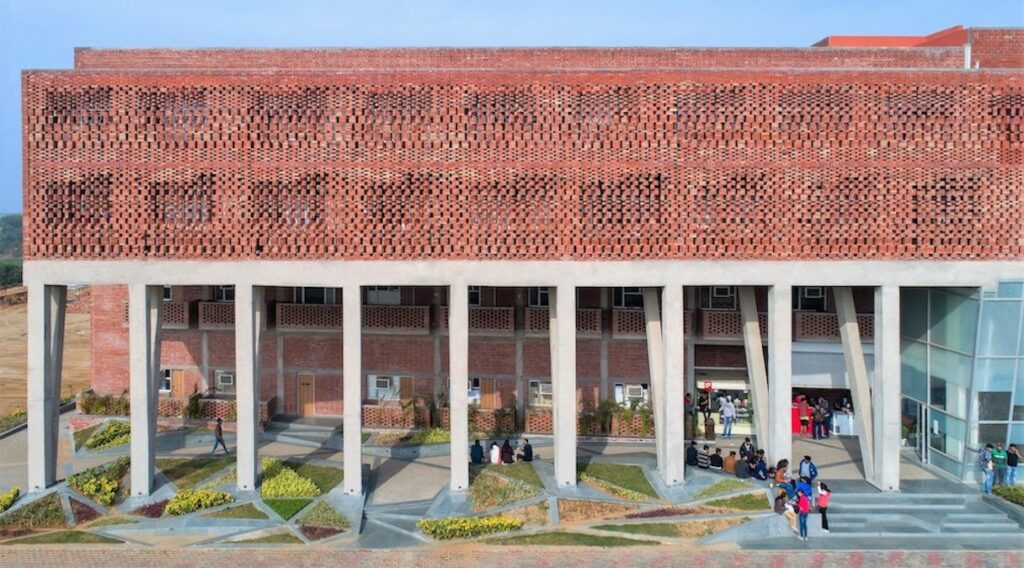
The admission process for B.Tech in Computer Science Engineering (CSE) typically involves several key steps:
Eligibility Criteria
Educational Qualification: Completion of 10+2 or equivalent with Physics, Chemistry, and Mathematics as core subjects.
Minimum Marks: Generally, a minimum aggregate score of 50-60% in the qualifying examination.
Entrance Examinations
National Level Exams: Common exams include JEE Main and JEE Advanced.
State Level Exams: Such as WBJEE, MHT CET, or KCET.
Institutional Exams: Some institutes have their own exams like BITSAT, VITEEE, or SRMJEEE.
Application Process
Online Registration: Register for the entrance exams on their respective official websites, ensuring that you meet the eligibility criteria.
Form Filling: Fill out the application form with personal and academic details.
Fee Payment: Pay the application fee online.
Entrance Exam
Preparation: Study the syllabus, typically covering Physics, Chemistry, and Mathematics.
Examination: Appear for the entrance exam on the scheduled date.
Counseling and Seat Allocation
Results: Check results on the official websites.
Counseling: Participate in the counseling process based on your rank or score.
Seat Allocation: Select preferred colleges and branches, and seats are allotted based on merit and availability.
Admission Confirmation
Document Verification: Submit the required documents for verification to meet the eligibility criteria.
Fee Payment: Pay the admission fee to confirm the seat.
Reporting to College:
Enrollment: Complete the enrollment process at the allocated college.
Entrance Exam for B.Tech Computer Science Engineering Courses
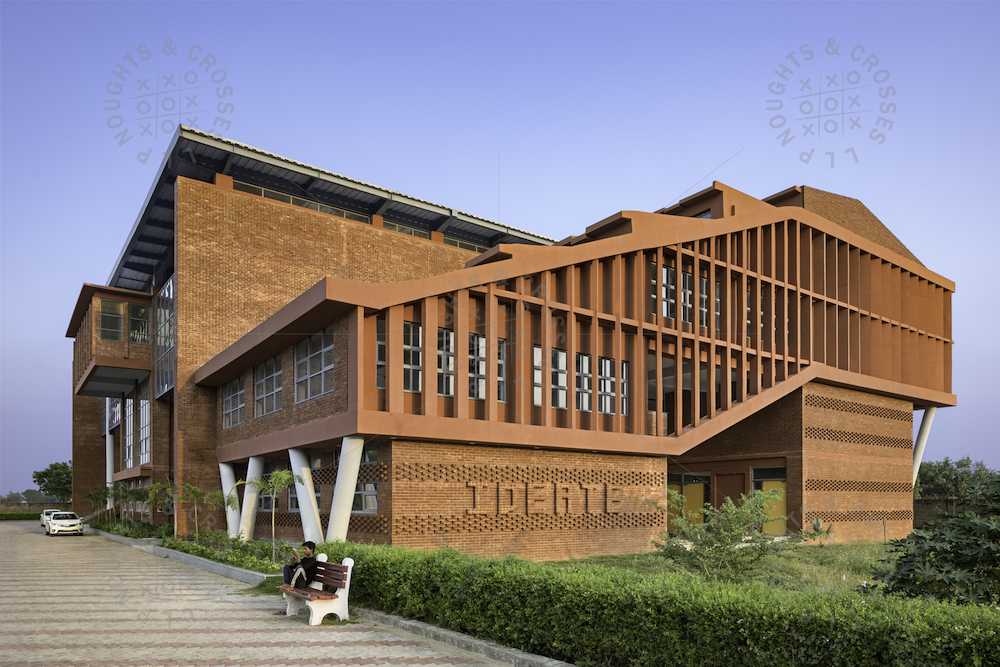
Here are some of the key entrance exams:
National Level Exams
JEE Main: Conducted by the National Testing Agency (NTA), this exam is the primary entrance test for admission to NITs, IIITs, and other centrally funded technical institutions. It also serves as a qualifying exam for JEE Advanced.
JEE Advanced: For admission to the prestigious Indian Institutes of Technology (IITs), candidates must first qualify in JEE Main.
BITSAT: Conducted by BITS Pilani, this exam is for admission to its campuses in Pilani, Goa, and Hyderabad.
State Level Exams
WBJEE: West Bengal Joint Entrance Examination for engineering colleges in West Bengal.
MHT CET: Maharashtra Common Entrance Test for engineering colleges in Maharashtra.
KCET: Karnataka Common Entrance Test for engineering colleges in Karnataka.
AP EAMCET: Andhra Pradesh Engineering, Agriculture, and Medical Common Entrance Test for colleges in Andhra Pradesh.
TS EAMCET: Telangana State Engineering, Agriculture, and Medical Common Entrance Test for colleges in Telangana.
B Tech Computer Science Specializations
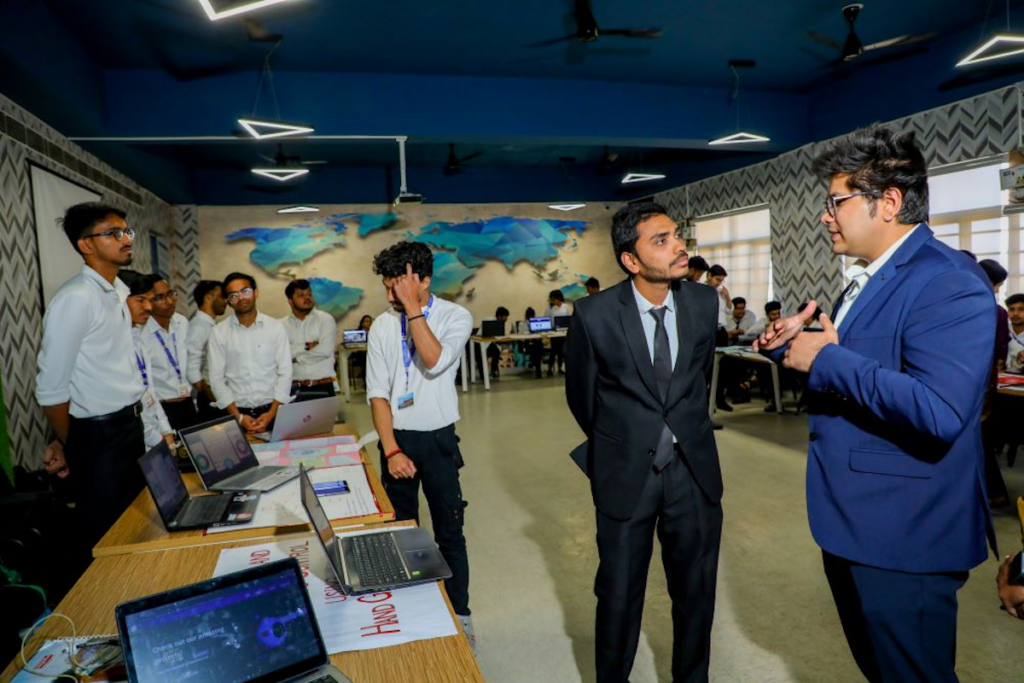
Here are some popular specializations in computer science:
Artificial Intelligence (AI):
Key Topics: Neural networks, deep learning, natural language processing, reinforcement learning.
Applications: Self-driving cars, virtual assistants, predictive analytics.
Data Science and Big Data Analytics
Key Topics: Statistical analysis, data mining, data visualization, big data technologies (Hadoop, Spark).
Applications: Business intelligence, healthcare analytics, financial forecasting.
Cyber security(CS)
Key Topics: Network security, cryptography, ethical hacking, digital forensics.
Applications: Protecting sensitive information, securing networks, preventing cyber attacks.
Cloud Computing
Key Topics: Cloud infrastructure, cloud services (AWS, Azure, Google Cloud), virtualization, distributed computing.
Applications: Scalable web applications, cloud storage solutions, enterprise IT infrastructure.
Internet of Things (IoT)
Key Topics: Embedded systems, sensor networks, IoT protocols, smart devices.
Applications: Smart homes, industrial automation, healthcare monitoring systems.
Blockchain Technology
Key Topics: Cryptographic principles, decentralized applications (DApps), smart contracts, blockchain platforms (Ethereum, Hyperledger).
Applications: Cryptocurrency, supply chain management, secure voting systems.
Human-Computer Interaction (HCI):
Key Topics: User interface design, usability testing, interaction design, user experience (UX).
Applications: Web and mobile app design, virtual reality, accessibility tools.
Robotics and Autonomous Systems
Key Topics: Robot kinematics, control systems, sensors and actuators, path planning.
Applications: Industrial robots, autonomous drones, service robots.
Software Engineering(SE)
Key Topics: Application Development, agile methodologies, software testing, data analysis, project management.
Applications: Large-scale software systems, mobile applications, enterprise software.
Computer Graphics and Visualization
Key Topics: 3D modeling, rendering techniques, computer animation, virtual reality.
Applications: Video games, special effects, simulation.
Quantum Computing
Key Topics: Quantum algorithms, quantum cryptography, quantum hardware, quantum information theory.
Applications: Cryptography, complex simulations, optimization problems.
Natural Language Processing (NLP)
Key Topics: Text mining, sentiment analysis, machine translation, speech recognition.
Applications: Chatbots, language translation services, information retrieval.
Top Government BTech Computer Science Colleges in India

Here are some of the top government B.Tech Computer Science colleges in India known for their quality education, infrastructure, and placement opportunities:
Indian Institute of Technology (IIT), Delhi
Situated in New Delhi, IIT Delhi is known for its rigorous academic curriculum and excellent placement records. The B.Tech program in Computer Science and Engineering at IIT Delhi is highly competitive.
St.Andrews Institute of Technology & Management, Delhi NCR
SAITM (St. Andrews Institute of Technology & Management), located in Delhi NCR, offers various undergraduate and postgraduate programs, including a Bachelor of Technology (B.Tech) degree in several disciplines, including Computer Science Engineering (CSE).
National Institute of Technology (NIT), Trichy
Formerly known as Regional Engineering College (REC) Tiruchirappalli, NIT Trichy is one of the premier NITs in India. It offers a comprehensive B.Tech program in Computer Science and Engineering with excellent infrastructure and placement opportunities.
National Institute of Technology (NIT), Warangal
NIT Warangal, located in Warangal, Telangana, is renowned for its academic excellence and robust industry connections. The B.Tech program in Computer Science and Engineering at NIT Warangal attracts students from across the country.
Indian Institute of Information Technology (IIIT), Hyderabad
IIIT Hyderabad is an autonomous institute known for its focus on research and technology innovation. The B.Tech program in Computer Science and Engineering at IIIT Hyderabad is highly reputed for its rigorous curriculum and industry-oriented approach.
Delhi Technological University (DTU), Delhi
Formerly known as Delhi College of Engineering (DCE), DTU is a leading technical university in Delhi. The B.Tech program in Computer Engineering at DTU offers state-of-the-art infrastructure and placement opportunities in top companies.
International Institute of Information Technology (IIIT), Bangalore
IIIT Bangalore is a premier institute focusing on information technology education and research. The B.Tech program in Computer Science and Engineering at IIIT Bangalore is known for its industry-aligned curriculum and strong placement records.
Top Private BTech Computer Engineering Colleges in India

Here are some of the top private B.Tech Computer Science colleges in India, along with their reputation and key highlights:
Birla Institute of Technology and Science (BITS), Pilani
Known for its excellent faculty, infrastructure, and placement opportunities.
St. Andrews Institute of Technology & Management,Delhi NCR
One of the prestigious colleges in India offers a number of UG and PG courses in the field of technology & management.
International Institute of Information Technology (IIIT), Hyderabad
Renowned for its focus on research and industry collaboration.
Vellore Institute of Technology (VIT), Vellore
Offers a strong curriculum and good placement opportunities.
PSG College of Technology, Coimbatore
Well-regarded for its engineering programs and strong industry ties.
Thapar Institute of Engineering and Technology, Patiala
Known for its academic excellence and placement records.
SASTRA University, Thanjavur
Known for its strong academic programs and research opportunities.
Shiv Nadar University, Greater Noida
Offers interdisciplinary programs and strong industry connections.
Career Scope after Computer Science Engineering Courses

The career scope for Computer Science Engineer is extensive and continuously evolving, offering opportunities across a myriad of industries. As technology becomes an integral part of various sectors, the demand for skilled computer science professionals continues to grow.
Computer science engineering graduates are well-equipped to enter roles in application development, data science, cybersecurity, and more, with each path offering its own unique set of challenges and rewards.
Software Development and Engineering
One of the most common career paths for Computer science engineering graduates is in application development and engineering. These professionals design, develop, test, and maintain software applications and systems.
The scope in this field is vast, covering roles such as software developers, software engineers, full stack developers, and mobile app developers. They may work on web applications, enterprise software solutions, or innovative mobile apps.
The continuous evolution of software technologies and methodologies ensures a dynamic and engaging career, with opportunities to work on cutting-edge projects and solve complex problems.
Data Science and Analytics:
The explosion of data in recent years has significantly increased the demand for data scientists and analysts. Computer science engineering graduates in this field are involved in extracting meaningful insights from large datasets to drive business decisions and strategies.
Roles such as data scientists, data analysts, automated learning engineers, and data engineers are highly sought after. These professionals use statistical methods, automated learning algorithms, and data visualization techniques to analyze and interpret complex data.
The career scope in data science is vast, encompassing industries like finance, healthcare, marketing, and technology, where data-driven decision-making is crucial.
Cyber security
As cyber threats become more sophisticated, the need for cybersecurity professionals has never been greater. Computer science engineering graduates can pursue careers as cybersecurity analysts, security engineers, ethical hackers, and information security managers.
These roles involve protecting an organization’s information systems from cyberattacks, ensuring data privacy, and implementing security measures. The scope in cybersecurity is broad, covering various aspects such as network security, application security, and risk management.
Given the increasing frequency and severity of cyber incidents, professionals in this field are in high demand across all sectors, including government, finance, healthcare, and technology.
Artificial Intelligence and Machine Learning
Artificial Intelligence (AI) and Machine Learning (ML) are transforming industries by automating processes and enabling intelligent decision-making.
Computer science engineering graduates specializing in AI and ML work on developing algorithms and models that can learn from data and make predictions. Roles in this field include AI engineers, automated learning engineers, and research scientists.
The scope of AI and ML is expansive, impacting areas like robotics, natural language processing, computer vision, and autonomous systems.
The rapid advancements in AI technologies offer exciting career opportunities and the chance to work on innovative projects that shape the future.
Emerging Technologies and Research
The field of computer science is constantly evolving, with new technologies emerging regularly. Computer science engineering graduates can engage in research and development roles, exploring areas like blockchain, quantum computing, and the Internet of Things (IoT).
These roles often involve working in cutting-edge laboratories or research institutions, pushing the boundaries of current technology.
The career scope in emerging technologies is promising, with the potential to make significant contributions to the advancement of science and technology.
Salary for Computer Science Engineers
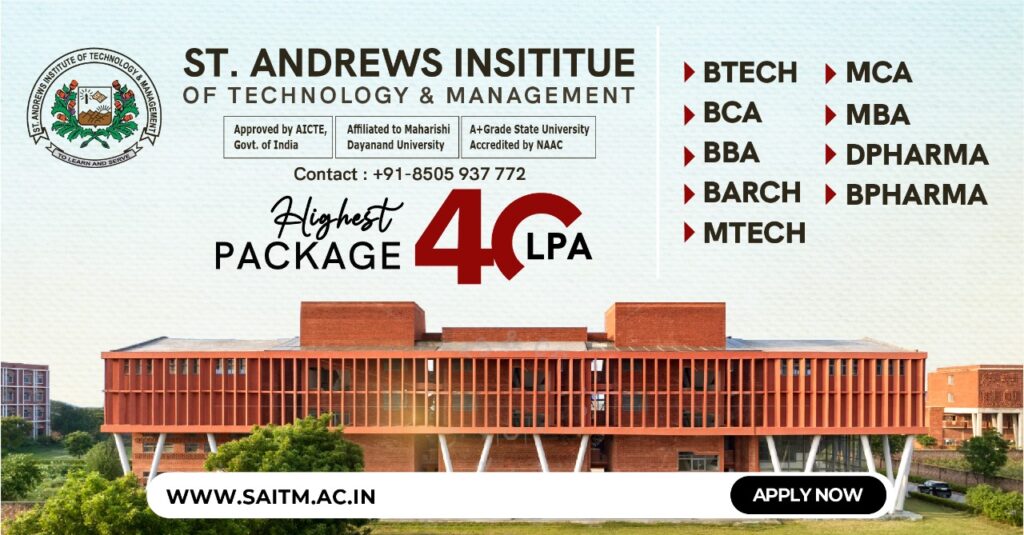
The salary for Computer Science Engineers in India varies based on factors such as experience, skills, location, and the specific industry or company.
Here’s an overview of the typical salary ranges across different experience levels:
Entry-Level Salaries
Fresh graduates with a B.Tech in Computer Science Engineering can expect entry-level salaries ranging from INR 3.5 lakhs to 10 lakhs per annum, depending on the company and location.
Top-tier IT companies such as TCS, Infosys, Wipro, and Accenture typically offer salaries in the range of INR 3.5 to 6 lakhs per year.
Companies like Google, Microsoft, and Amazon often offer higher compensation, starting from INR 10 lakhs annually or more, particularly in technology hubs like Bengaluru, Hyderabad, and Pune.
Mid-Level Salaries
Professionals with 3 to 5 years of experience can expect mid-level salaries ranging from INR 8 lakhs to 20 lakhs per year.
Engineers in this bracket often work as software developers, systems analysts, or project managers, handling more complex projects and responsibilities.
Multinational corporations and tech startups in metro cities offer competitive salaries, sometimes supplemented by bonuses and stock options.
Senior-Level Salaries
Experienced Computer Science Engineers with over 10 years of experience and expertise in specialized areas like AI, cybersecurity, or cloud computing can earn salaries ranging from INR 20 lakhs to 50 lakhs per year or more.
At this level, professionals often hold leadership positions such as technical architects, IT directors, or senior managers, overseeing large-scale projects and teams.
Companies such as Microsoft, IBM, and Intel are known for offering lucrative compensation packages to senior-level engineers with significant experience and skills.
Top Recruiters for B.Tech Computer Science Engineering

Graduates with a B.Tech in Computer Science and Engineering (CSE) have a wide range of opportunities with top recruiters across various industries. These companies, aligned with the B Tech CSE Syllabus, are known for their cutting-edge technologies, innovative projects, and competitive compensation packages.
Technology Giants
Leading technology companies such as Google, Microsoft, Apple, Amazon, and Facebook (now Meta) are among the top recruiters for B.Tech computer science engineering graduates. These firms offer roles in application development, data science, AI research, and cloud computing, providing an environment that fosters innovation and continuous learning. Google, for instance, is renowned for its open culture and emphasis on creativity, while Microsoft provides extensive career growth opportunities through its diverse product lines and services.
IT Services and Consulting Firms
Global IT services and consulting firms like Tata Consultancy Services (TCS), Infosys, Wipro, Cognizant, and Accenture are also major recruiters. These companies offer roles in software engineering, systems integration, IT consulting, and business process outsourcing. Working with such firms, graduates gain exposure to a variety of industries and technologies, enhancing their versatility and problem-solving skills. TCS and Infosys, being among the largest IT firms in India, are particularly known for their extensive training programs and global client base.
Financial and Fintech Companies
Banks and fintech companies like Goldman Sachs, JPMorgan Chase, Morgan Stanley, and PayPal actively seek B.Tech computer science engineering graduates for roles in application development, cybersecurity, and data analytics. These positions often involve working on high-performance computing systems, algorithmic trading, and secure online transaction platforms. The fast-paced and high-stakes environment of these companies provides valuable experience in risk management and innovative financial technologies.
E-commerce and Retail Giants
Leading online retail giants such as Amazon, Flipkart, and Alibaba also recruit heavily from B.Tech computer science engineering programs. These companies require expertise in areas like big data, automated learning, and supply chain optimization to improve their platforms and customer experience. Amazon, in particular, is known for its pioneering work in remote computing through AWS (Amazon Web Services), offering roles that drive the backbone of modern internet infrastructure.
Startups and Emerging Companies
Emerging tech companies provide an exciting alternative, often offering roles that involve cutting-edge technologies and the chance to work in a dynamic, fast-growing environment. Companies like Zomato, Swiggy, Ola, and Byju’s are notable examples. Working at these startups, B.Tech computer science engineering graduates can often experience a more flexible work environment, the opportunity to wear multiple hats, and the potential for significant career growth and impact.
Telecommunications and Networking
Global connectivity companies like Cisco, Ericsson, Nokia, and Qualcomm hire B.Tech computer science engineering graduates to work on networking, communication systems, and 5G technologies. These roles typically involve developing and maintaining the infrastructure that supports global connectivity, a critical aspect of modern digital life.
Required Skillset for Computer Engineers

Here are the key skills needed for success in computer science engineering:
Programming Languages:
Essential: Proficiency in languages like C, C++, Java, Python, or others depending on specialization.
Web Development: Knowledge of HTML, CSS, JavaScript, and frameworks like React or Angular.
Scripting: Skills in scripting languages such as Python or Perl for automation and scripting tasks.
Data Structures and Algorithms:
Understanding and implementation of fundamental data structures (arrays, linked lists, trees, graphs) and algorithms (sorting, searching, dynamic programming).
Database Management:
Knowledge of database systems like SQL and NoSQL, ability to design, query, and manage databases efficiently.
Operating Systems;
Understanding of OS concepts such as processes, threads, memory management, and file systems.
Software Engineering:
Familiarity with application development lifecycle (SDLC), agile methodologies, version control systems (e.g., Git), and software testing techniques.
Computer Networks:
Understanding of networking protocols (TCP/IP, HTTP, DNS), network security principles, and basics of network architecture.
Web Technologies:
Skills in web development frameworks (e.g., Django, Flask for Python; Spring for Java), RESTful APIs, and remote computing platforms (e.g., AWS, Azure, Google Cloud).
Machine Learning and AI:
Basic understanding of machine learning algorithms, data preprocessing, model evaluation, and AI concepts like neural networks and deep learning.
Cyber security:
Knowledge of cybersecurity principles, encryption techniques, ethical hacking, and secure coding practices.
Mathematics and Probability:
Strong foundation in mathematical concepts such as discrete mathematics, linear algebra, calculus, probability, and statistics.
Problem-solving Skills:
Ability to analyze complex problems, break them down into manageable parts, and develop efficient solutions using algorithms and data structures.
Communication and Collaboration:
Effective verbal and written communication skills, ability to work in teams, and collaborate with peers on projects.
Continuous Learning:
Willingness to stay updated with emerging technologies, trends in the industry, and pursue lifelong learning through courses, certifications, and self-study.
Critical Thinking and Creativity:
The capacity for critical thinking, creatively approaching challenges, and innovating solutions across various domains of computer science.
Project Management:
Basic understanding of project management principles to plan, organize, and execute software projects effectively.
FAQs
What are the core subjects covered in B.Tech Computer science engineering?
B Tech CSE Syllabus typically include Data Structures, Algorithms, Operating Systems, Computer Science, Database Management Systems (DBMS), Software Engineering, and Computer Programming Languages like C, C++, Java, and Python.
What are elective subjects, and how many can I choose?
Elective subjects are specialized courses that students can choose based on their interests. Typically, within the B Tech CSE Syllabus, students can select a certain number of electives from a list provided by their university or college.
Are there practical labs or hands-on sessions included in the syllabus?
Yes, B.Tech Computer science engineering syllabus includes practical labs and hands-on sessions. These sessions cover programming labs, data structures labs, database labs, network labs, and application development projects.
How is the B.Tech Computer science engineering syllabus structured across semesters?
The syllabus is typically structured across eight semesters. The first two years of the B Tech CSE Syllabus cover foundational courses in mathematics, physics, and basic computer science. Later years focus on advanced topics and electives.
What are some specialized elective subjects I can choose from?
Specialized electives often include Artificial Intelligence, Automated Learning, Data Science, Cybersecurity, and Remote Computing. The B Tech CSE Syllabus also covers advanced topics like Internet of Things (IoT), Mobile Computing, and Web Technologies.
How often is the B.Tech Computer science engineering syllabus updated to include new technologies?
The B Tech CSE Syllabus is updated periodically to include emerging technologies and industry trends. Universities and colleges revise their curriculum to ensure students are equipped with relevant skills.

